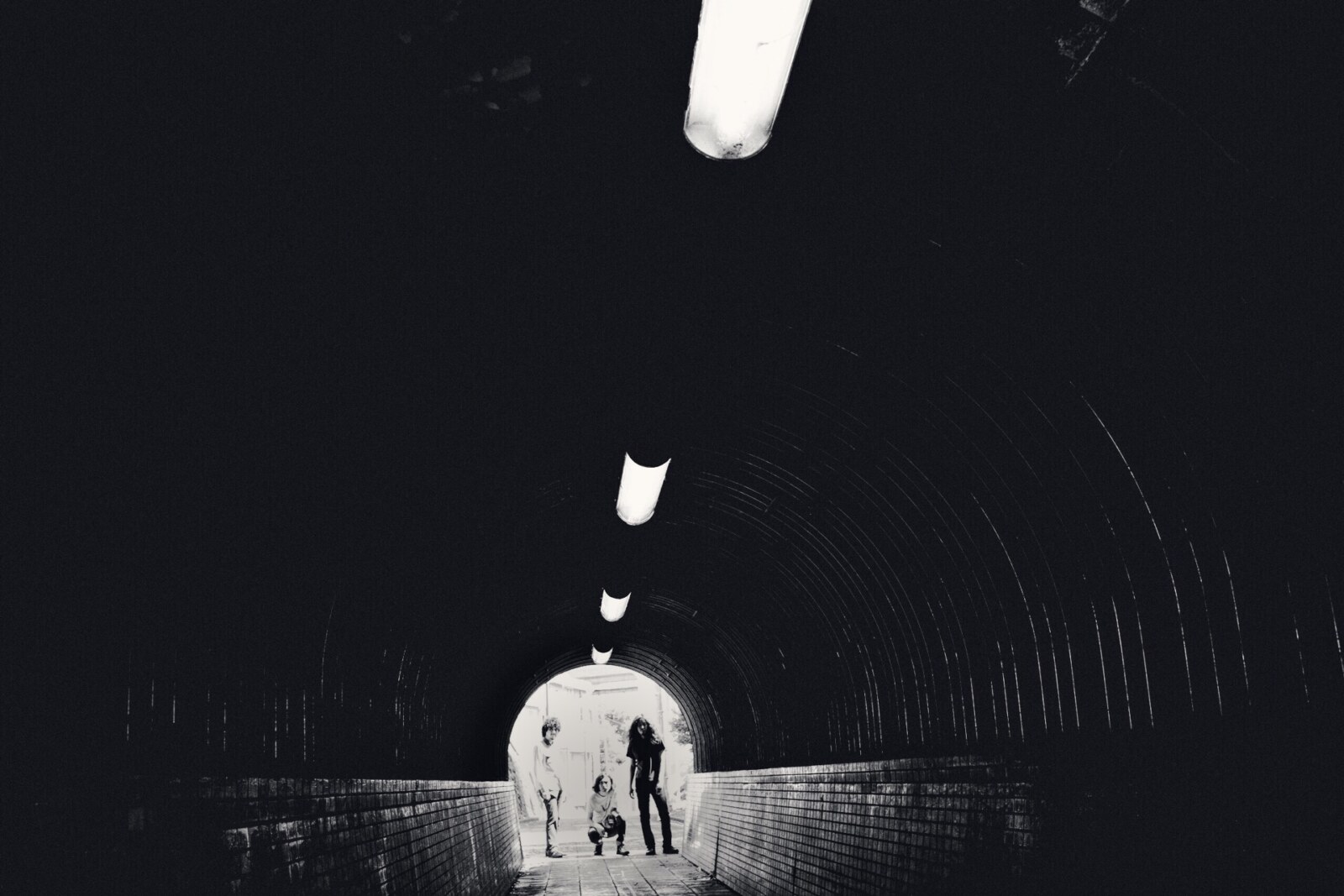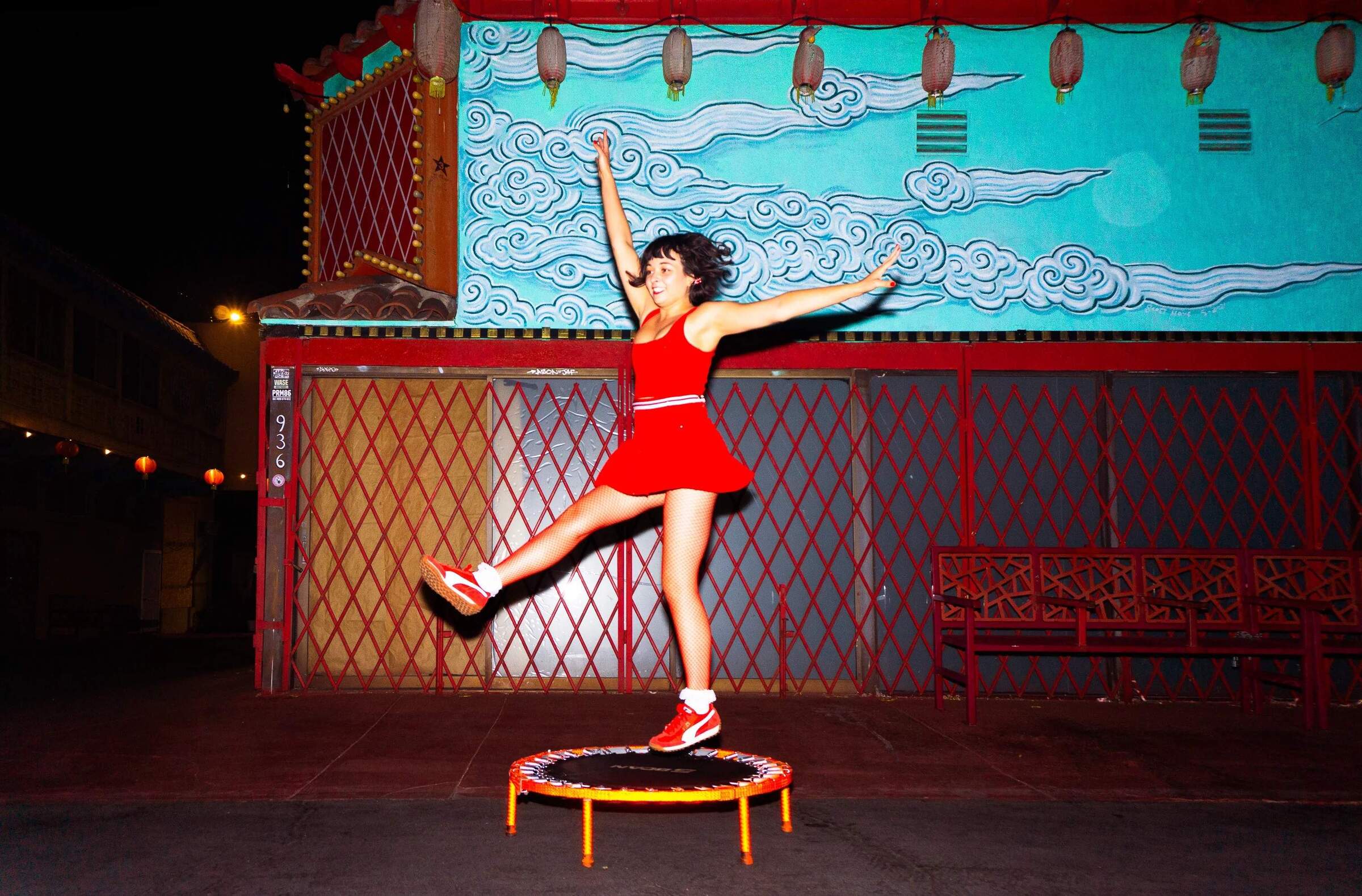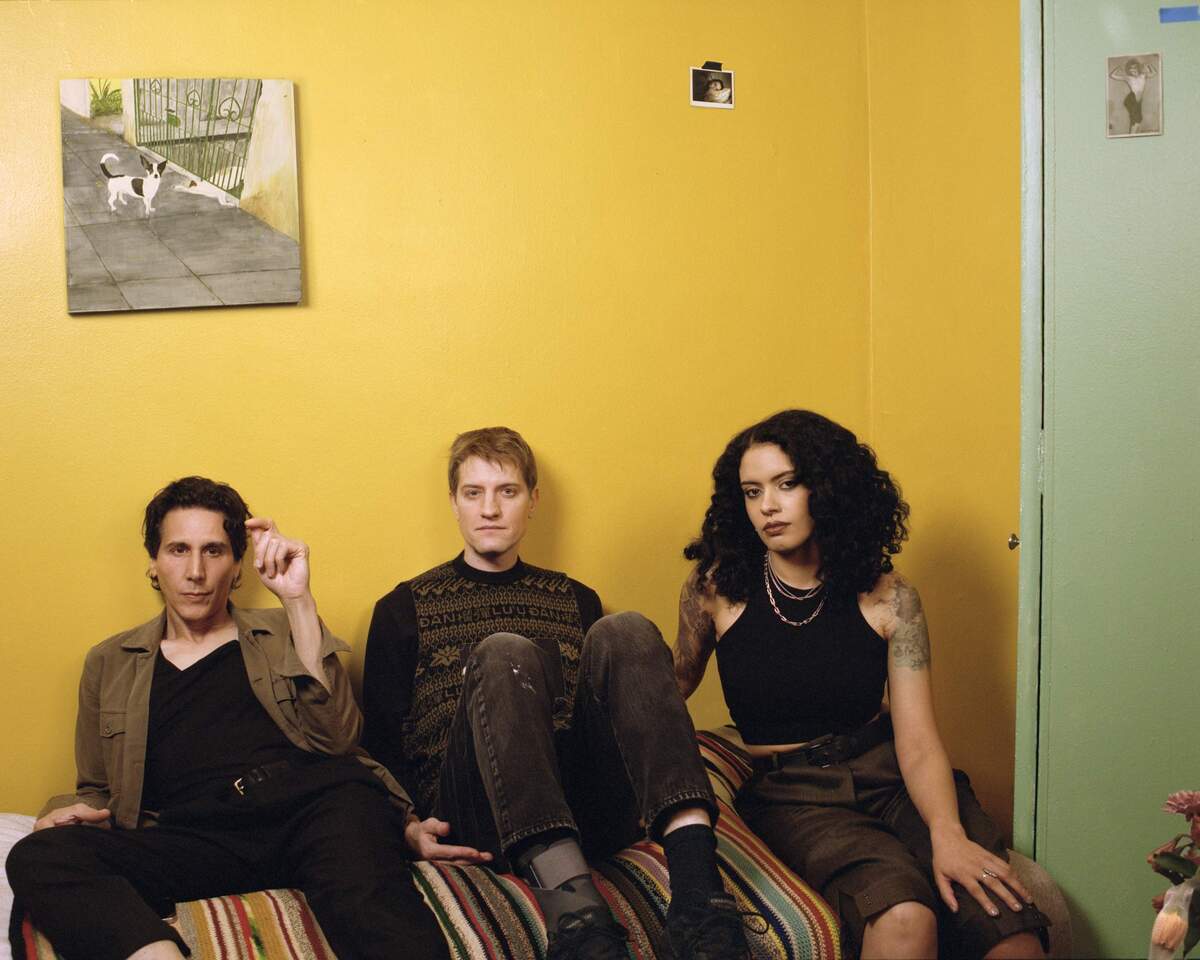Minami Deutsch | Interview | “Japanese Motorik Beat”
Minami Deutsch’s sound is influenced by their love for “krautrock” legends such as Can and Neu!. The band members are also self-professed “repetition freaks” who heavily listen to minimal techno.
Whilst softening their sound and cushioning the blow, you can expect a more profound diversity in their sound, whilst retaining the principle ingredients that make them so great, such as their signature fuzz, thumping bass and dream-like vocals. There is a heavier experimentation in regards to genre exploration.
“Rhythm and bass are the most important”
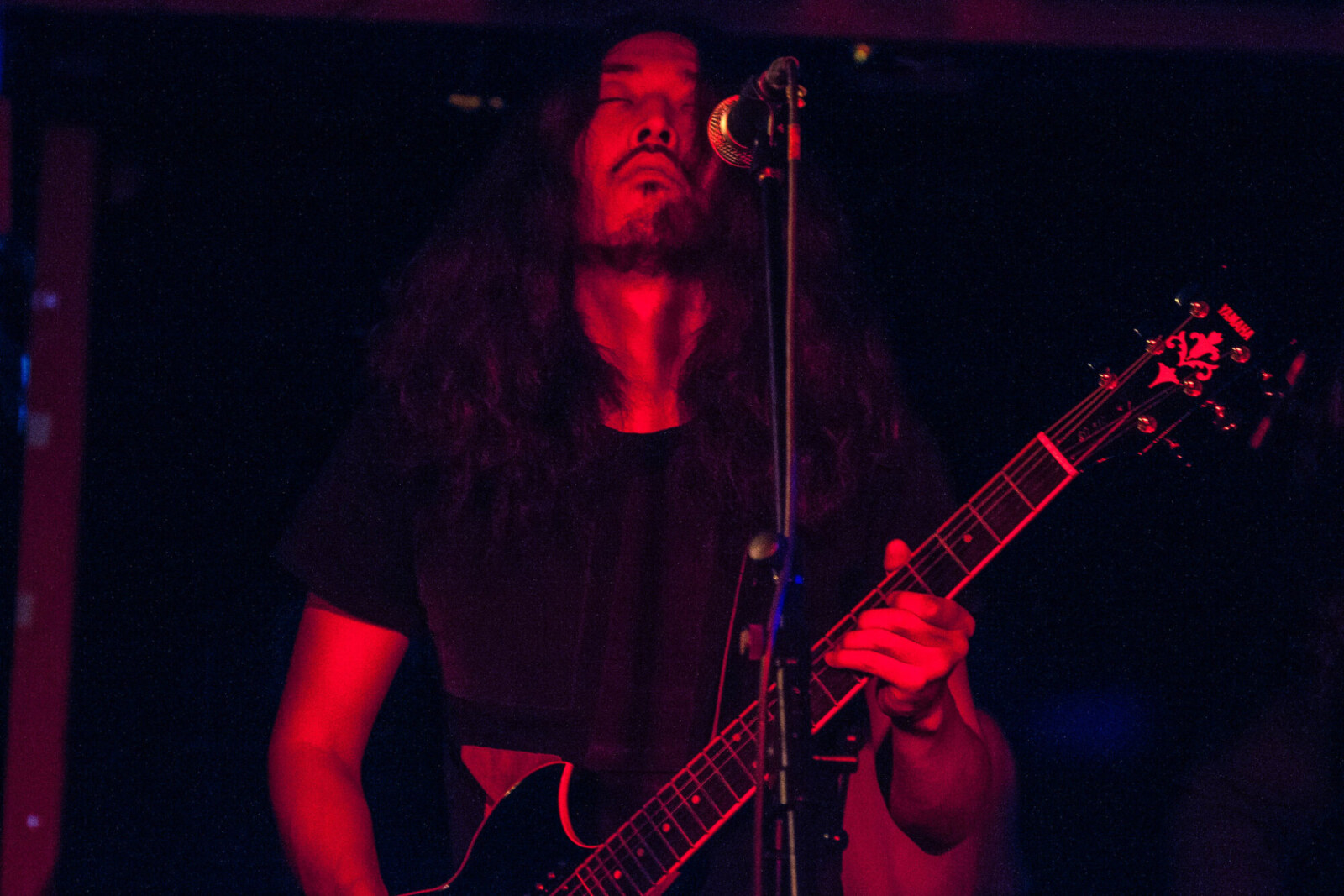
When did you begin playing music? What was your first instrument? Who were your major influences?
Kyotaro Miula: I think I was about 15 years old. I bought an acoustic guitar at that time, but I couldn’t hold the F chord and gave it up soon. Three months later I tried playing on an electric guitar at a music store, and it was easier to play. So I bought it and started playing.
I think my first influence was punk… I liked the famous UK punk bands like everyone else but gradually I was drawn to New York style. I liked Robert Quine, the guitarist of Richard Hell And The Voidoids. That’s how I started listening to The Velvet Underground and other avant-garde music from New York. I think I was also listening to Garage Rock and Rockabilly at the same time. I liked Brian Setzer… That was my early experience.
When did you decide that you wanted to start writing and performing your own music? What brought that about for you?
I was composing from the beginning. Friend’s bands around me were playing cover songs, but I didn’t understand what was fun about playing covers. I think it was the punk influence that made me compose my own songs. I had thought that I had to make something new, like young artists getting ambitious, but I think I just had such a feeling. The songs I was writing were quite common. Ah, and I’ve played The Ramones songs.
Can you elaborate on the formation of Minami Deutsch?
In fact, I wasn’t thinking of doing a band anymore when I was in my twenties. I was really into black music at that time and just digging rare groove stuff. I decided to start a band again because I met Kikagaku Moyo’s guys. There’s a passion and a motivation I was looking for. We were always in a rehearsal studio. They had studied in the US and I was always excited to listen to their talk. At the time, I was really into “krautrock”, so I wanted to form a band like that. One day I met a drummer named Nozaki at an event called Tokyo Psych Fest, and we hit it off and started playing together. After that, I decided to add another guitarist and met a guy who was 19 years old. When we went to the rehearsal studio with him, he turned off the treble and middle on the Marshall amp and played only the lows. His sound was thick and caged, and I thought it was interesting. And we decided to start playing together as Minami Deutsch.
How did you decide to use the name “Minami Deutsch”?
Minami means south in Japanese. When I was in a rehearsal studio at midnight with Go and Tomo from Kikagaku Moyo, we were thinking about funny band names for each other. I came up with three or four ideas, and I was joking around and asking people in the studio which one is the best for them. One of them was Minami Deutsch. East Germany and West Germany are historically well-known words, but I wondered why North and South were not. And since I lived in Japan, the north sounded dangerous to me. So I chose the south.
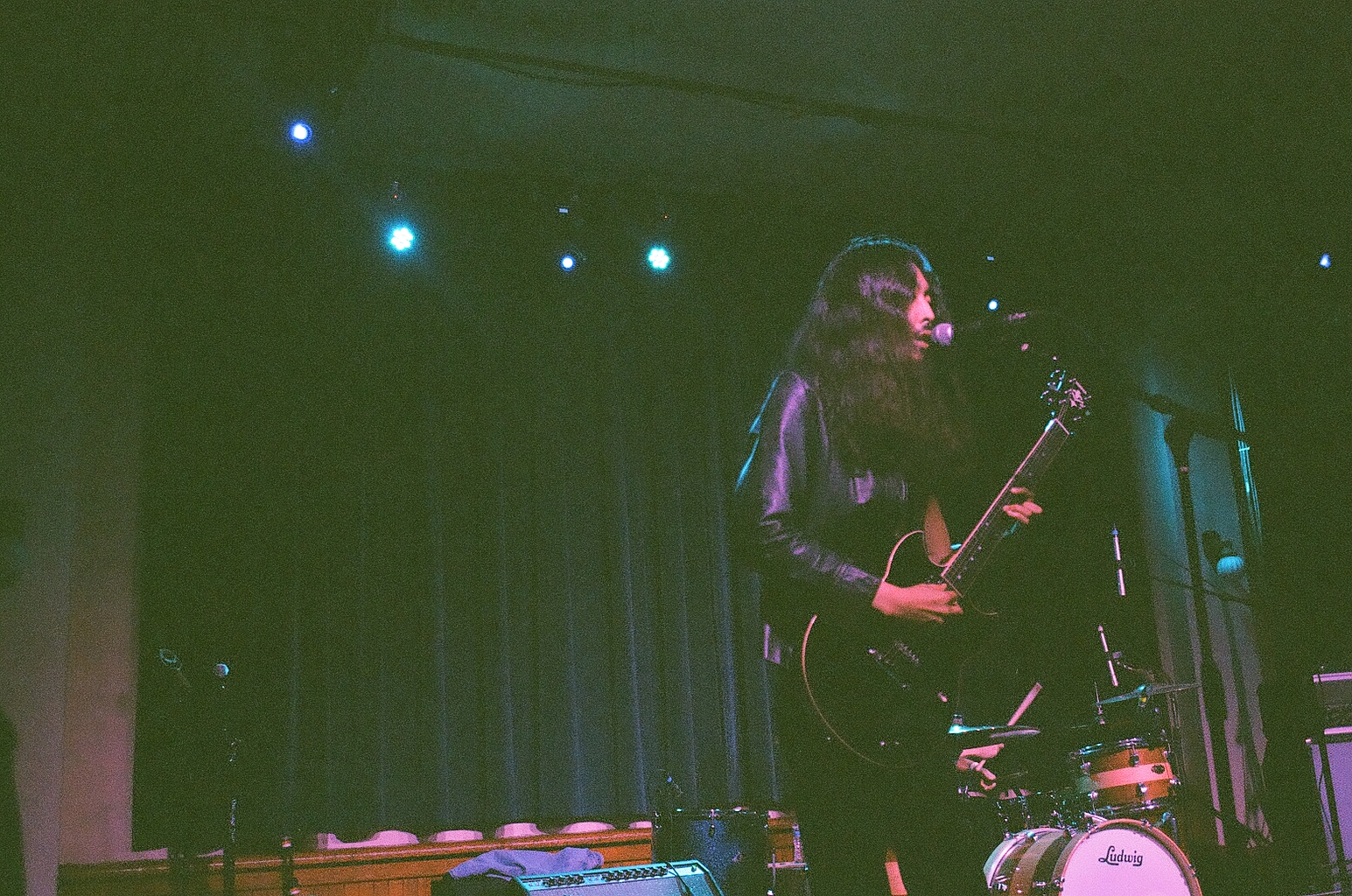
How do you usually approach music making?
When an idea comes to mind, I record it. Sometimes a melody for singing or a guitar melody comes to me first, but I usually create a beat or a bass line first. For me, rhythm and bass are the most important. I can make something with the guitar anytime but I think the basic color or atmosphere for the song are created from the drums and the bass. I usually make all the parts by myself. I make a lot of demos and then find the better one of them and compose in earnest.
What’s the story behind your debut album ‘Minami Deutsch’ from 2015?
We didn’t have any money, so we recorded at a rehearsal studio with a crappy drum set and microphones. At the time, multi track recorders were getting smaller and smaller and I found one that could record 8 tracks at the same time, so we were able to record the drums ourselves. Then I mixed and mastered them myself. It was self-study. I still don’t know much about it. We recorded in a few days, so I don’t remember how many hours it took. There’re songs recorded together and separated.
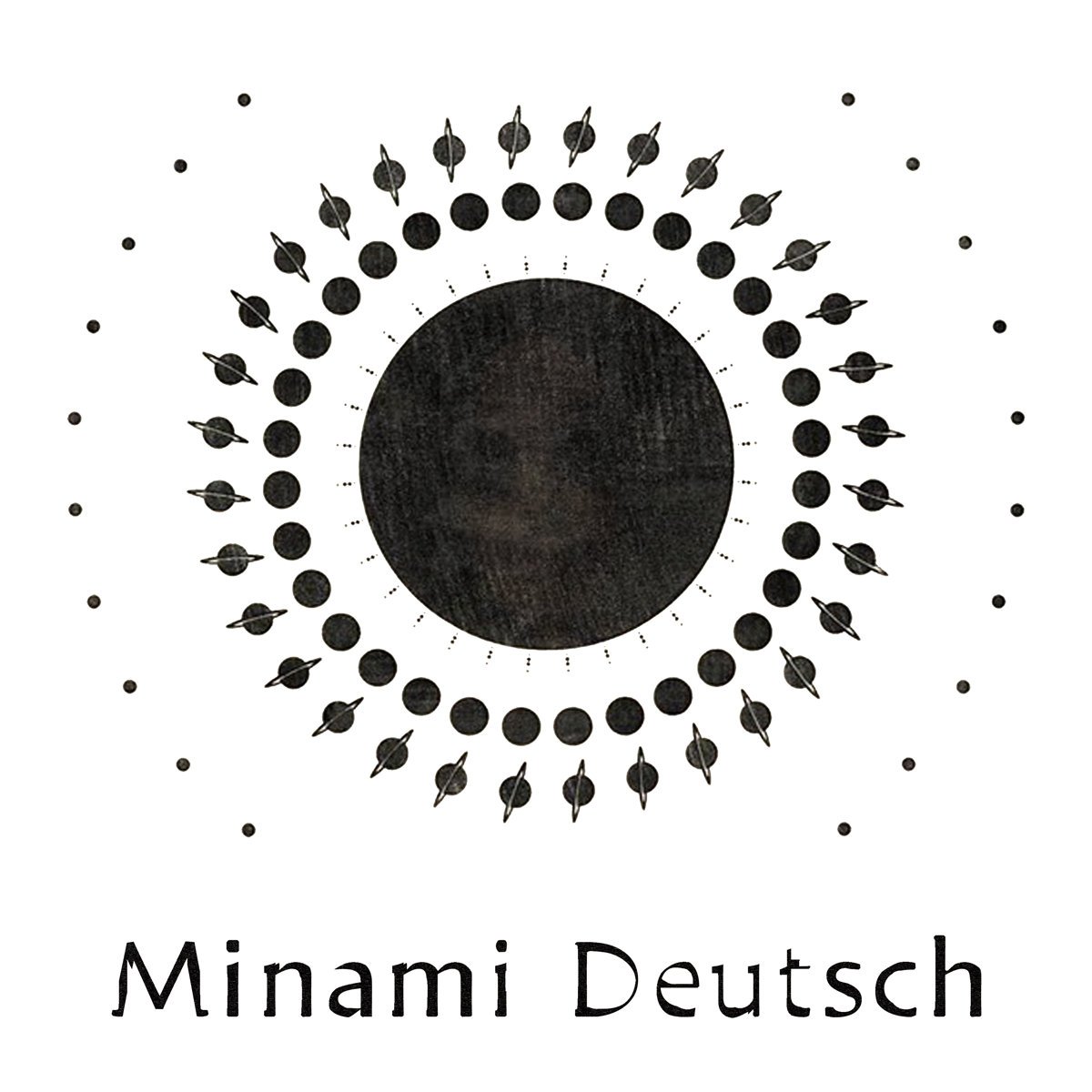
In 2018 you issued your second album ‘With Dim Light’. How would you compare it to your debut?
As usual, I had no money, so I recorded it in a rehearsal studio. The microphones in the studio were always free, no matter how many you rented. Of course, if I could have spent hundreds of thousands of yen and done it in a good recording studio, it would’ve been nice. We didn’t have the time and money, and I was overconfident that I could do it myself to the same quality. I don’t think so now…
I had a clear idea for our first LP. I thought it would be nice if all the songs on the album are “Motorik Beat”. I didn’t think such work had ever been done before. If it’s only one or two songs, I think it’s easy.

“Krautrock” has many elements and it’s not only “Motorik Beat”. And we also like many other bands in that scene so I decided to make a wider “krautrock” album for the second album. Well we’ve listened to a lot of music besides “krautrock” before, so I think various things mixed unconsciously.
What are some bands/musicians that have a big influence on you?
I always think it depends on age. When I was 16 years old, there were Robert Quine and Arto Lindsay in my soul. Around 18 years old, there were Eric Dolphy, Roy Ayers, Gil Scott-Heron… And Herbert, Ricardo Villalobos, et cetera.
When I find great music, I listen to it a lot. I devote myself to the musician. I may or may not find one every two or three years. It’s like fetish. That’s why I listen to music so much, but it’s not necessary to know a lot of musicians. Among the bands that are still active, I respect Swans, Osees and Dungen.
Are any of you involved in any other bands or do you have any active side-projects going on at this point?
Recently I started another project called Fagus Fluvialis. I’d listened to dark wave and minimal wave in the past few years and I wanted to have a duo. And my friend Fluor decided to sing my songs. I basically want to do what I can express with electronic music in this project.
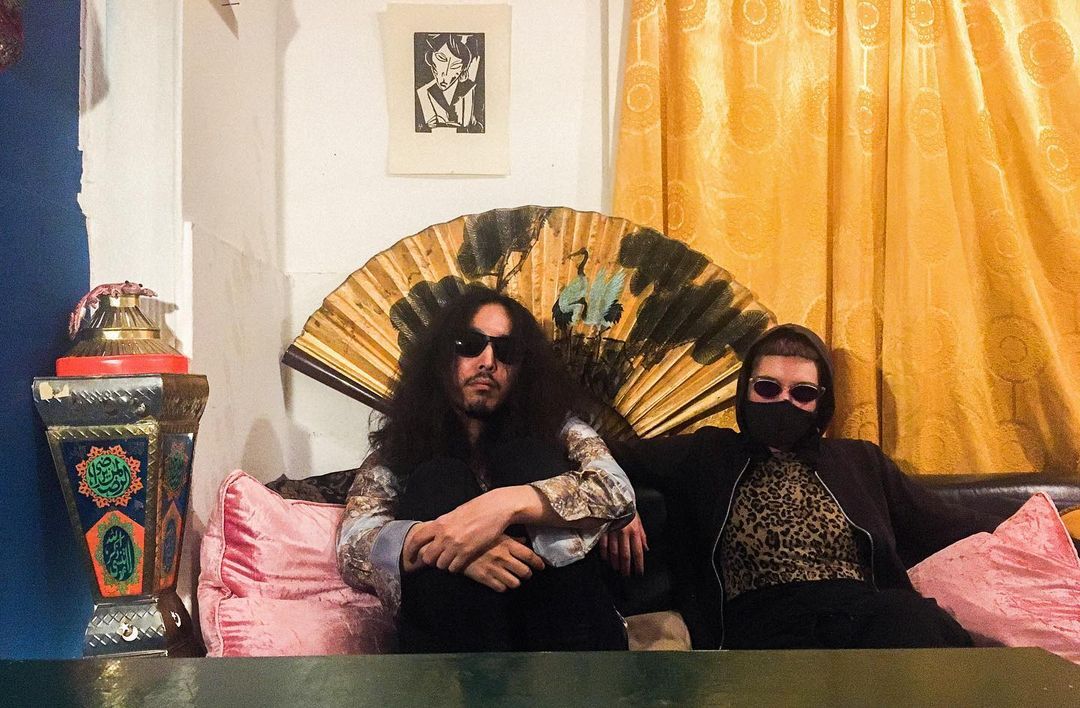
I’m thinking of releasing a single and an album. For starters, we covered ‘Femme Fatale’ of The Velvet Underground. So if you listen to it, I’d be very happy. The lyrics were written from a male perspective, so we tried to change it to a female perspective on our own and I think it fits with the times and I’m sure Andy and Edie will understand. I shot the music video on super 8mm film. I want music videos for other songs so if anyone wants to do that, please contact me.
I also do some remixes personally. The first one I did was for ‘On The Skin’ by The KVB, and more recently I remixed one for a band on Fuzz Club Records. I think it will be released next year.
I know it’s hard to talk about future plans, but what are some and how are you coping with the current pandemic?
Our first and second albums are being reissued! When this interview is published, they will be for sale. Thanks.
And we are working on a new album and it will be released before next summer hopefully. And we’re talking about a European tour for next year. We’d love to go to the U.S. as well though. I remember touring with Kikagaku Moyo in 2019 for the first time and it was a really amazing experience.
We were not able to tour like the other musicians because of the effects of the pandemic. It’s a shame but recording this time was quite a struggle so I think it would have taken a long time regardless of the Covid situation.
How important is improvisation for you?
I’m always interested in jamming with the same members. After jamming, we always have a discussion together. Like “what I wanted is this” and so on. I like to aim for something that we all think is good. It’s about the atmosphere, not melody or rhythm. Keep doing that, and you’ll get an idea of what bandmates are thinking gradually. I don’t think totally free jam is cool or beautiful. Of course, it depends on who you play with.
Also, what I want to say about improvisation is that it’s important how you listen. When you improvise and play existing songs, I think the audience will be required to enjoy it differently, and if they don’t know it, they might find it boring. For example, when I don’t come up with an idea, I pretend to have a good idea, but some people look freaked out, and it’s interesting to see that. If you don’t notice that kind of tension and communication through jamming, you would think that he’s not good at it, or that the existing songs are better, but I don’t think that’s the point.
“Tense jamming is fun because it shows your personality”
You had the opportunity to play with Damo Suzuki at the Roadburn Festival? How was that?
It was a dream come true for us because we were watching his performance from back then on YouTube. I wanted to ask a lot of questions, but I didn’t talk to him much.
Tense jamming is fun because it shows your personality. I remember me and Taku were playing major and minor melodies with each other and it was a mess. After that, I met Damo at the Grauzone Festival in The Hague in 2020 again. We also had a common acquaintance who works on a magazine, and he finally remembered my name.
In the past years you also released several singles and EP’s for Höga Nord Rekords and God Unknown Records.
Well, I just did it since I was offered the opportunity. I’m honored to collaborate with various labels. At that time, I thought that if we only worked with Kikagaku Moyo’s label, people would naturally think we were just a second fiddle to them, so I wanted to try working with other labels. But at the same time, I thought that by collaborating with other labels, people who hadn’t heard of us before would get to know us, and that would ultimately be good for GuruGuru Brain, so we actively collaborated with them.
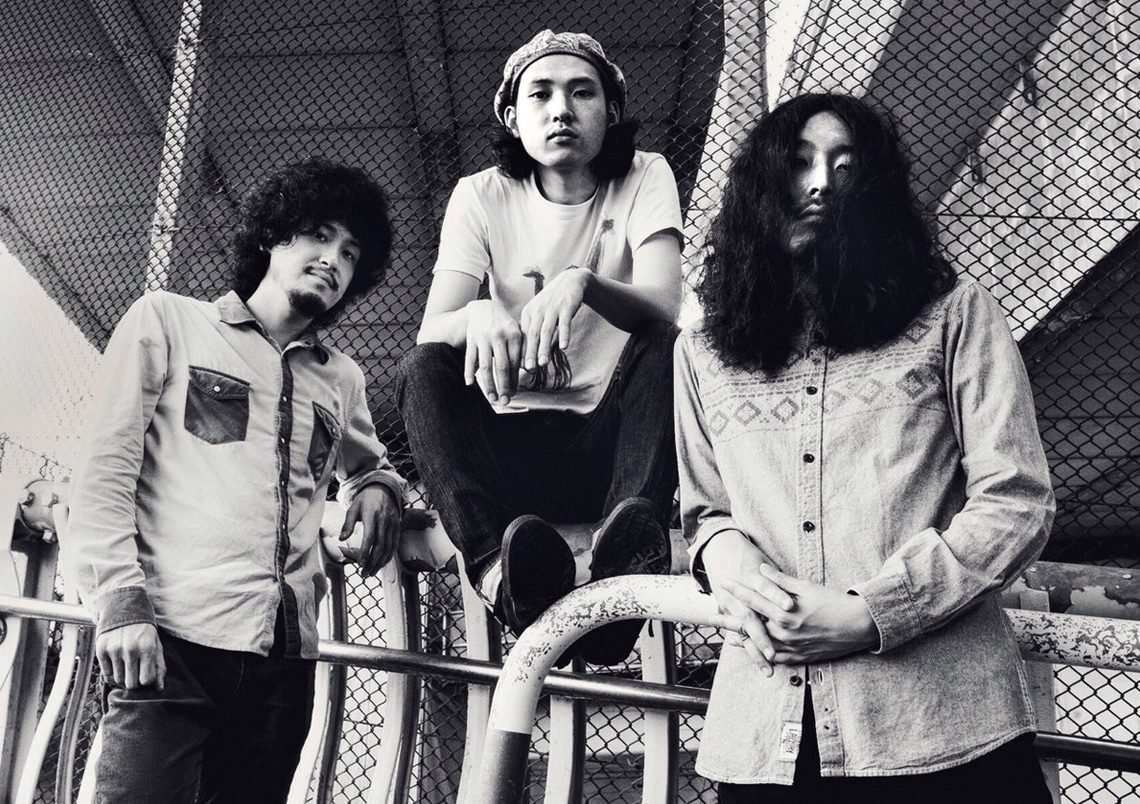
Let’s end this interview with some of your favourite albums. Have you found something new lately you would like to recommend to our readers?
I’m working on a new album right now, and I’ve been spending a lot of time editing it like Holger Czukay so I haven’t listened to other music, but recently I took a break and started to listen a lot again. These are my favorite ones I heard this year.
Ragnar Grippe – ‘Sand’
Don Cherry is being reevaluated these days, right?
Don Cherry & Terry Riley – ‘Tambourinen Session, Copenhagen, 1977’
K. Leimer – ‘Installation View’
Delphine Dora – ‘L’inattingible’
Klemen Breznikar
Minami Deutsch Facebook / Instagram / Twitter / SoundCloud / Bandcamp / Tumblr

